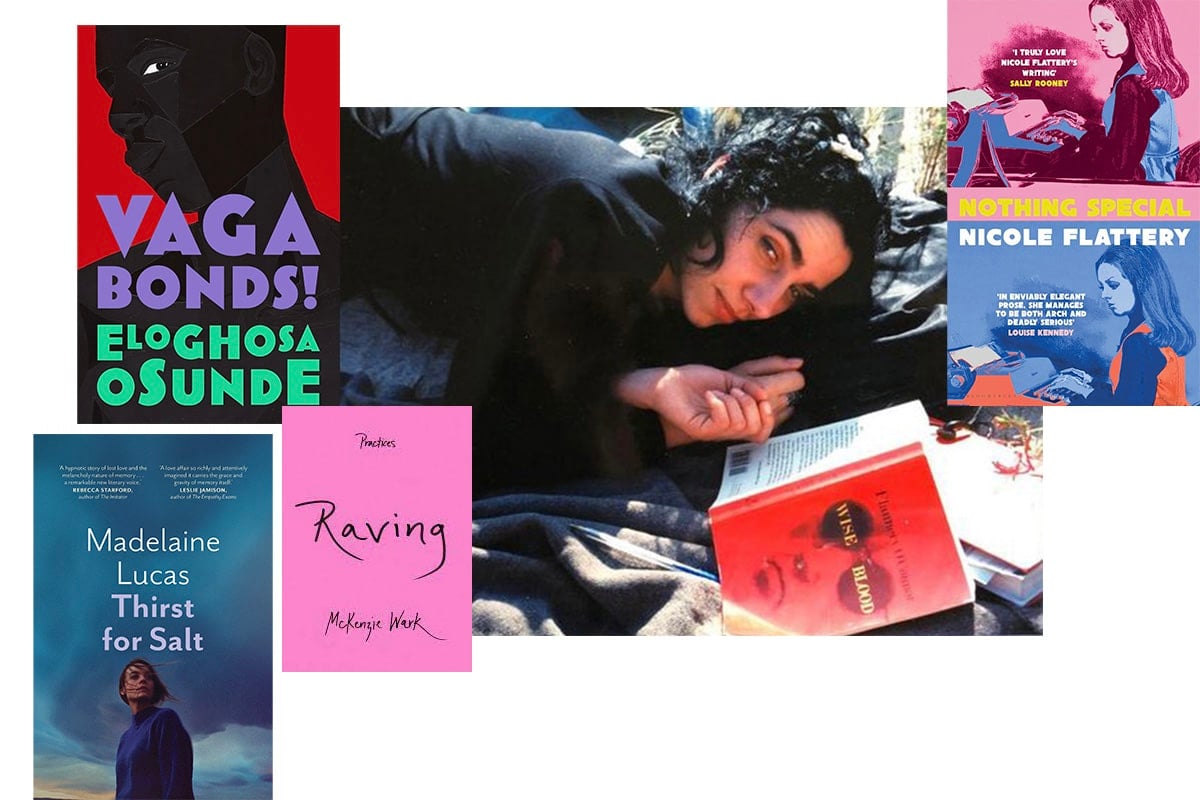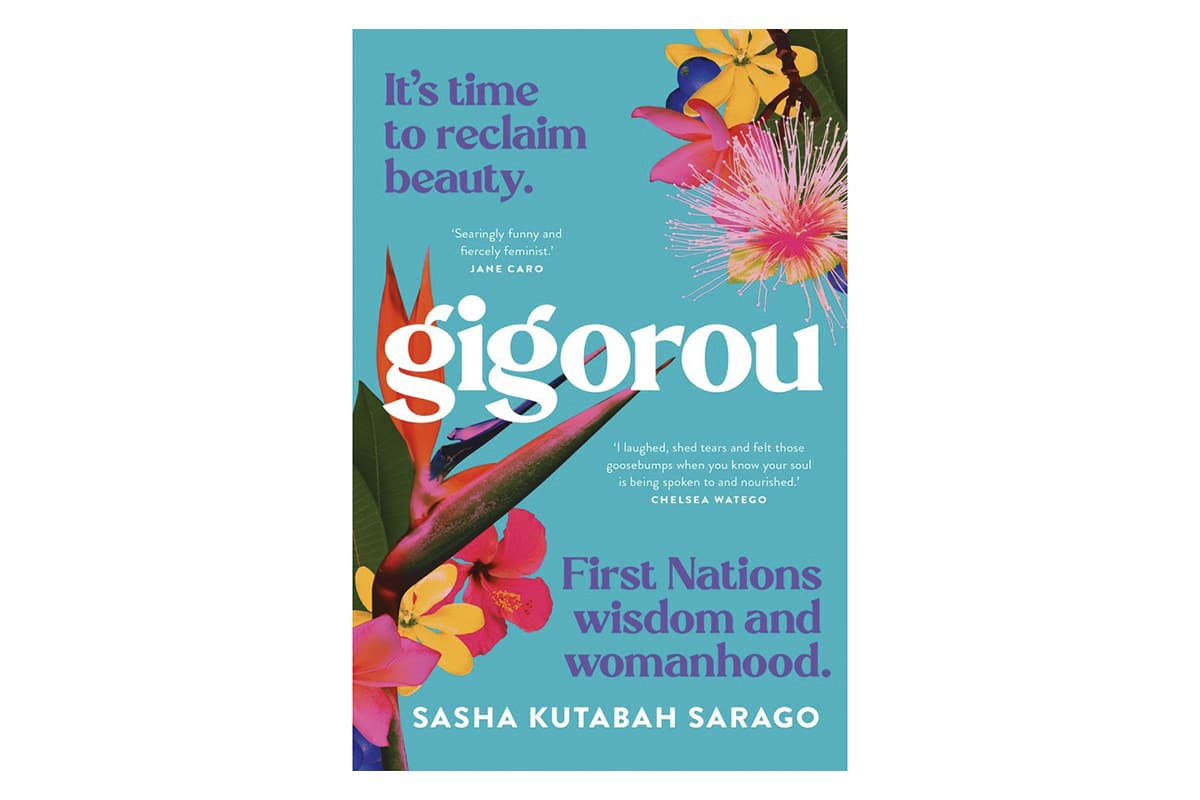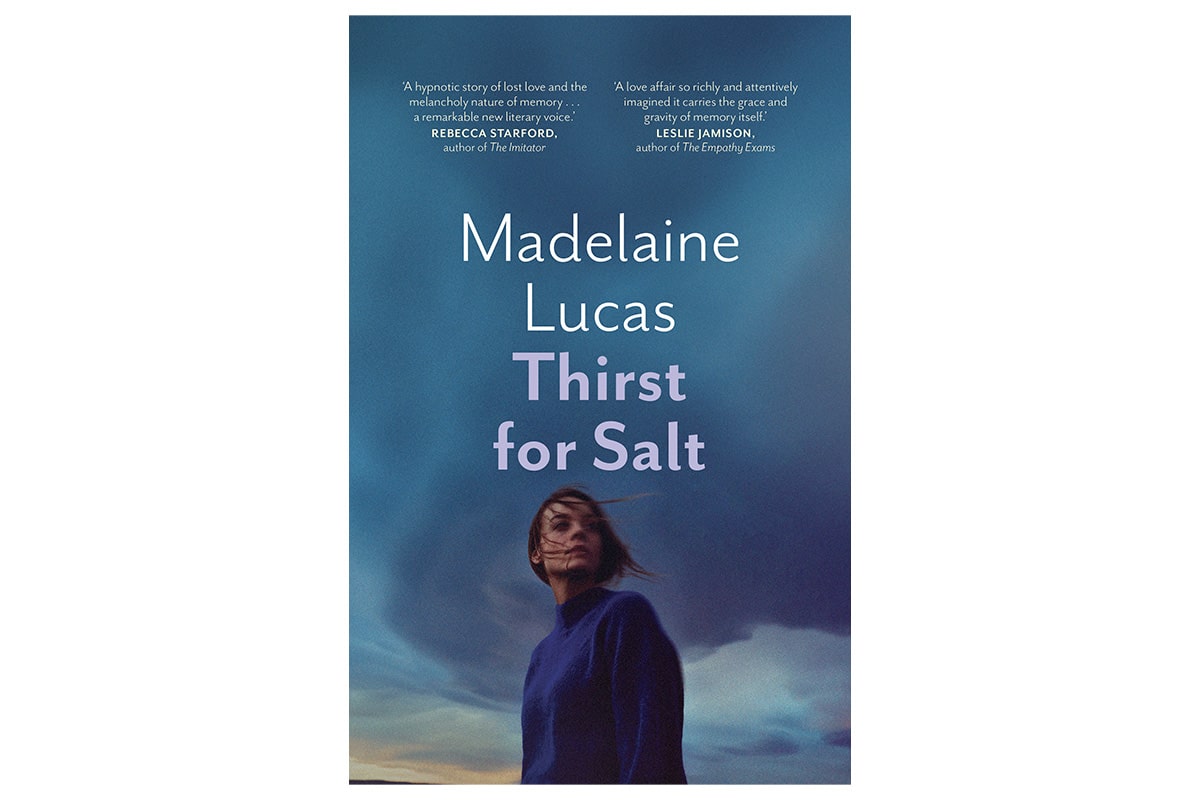
In case you're punishing yourself with the classics or simply want to open your eyes to fresh voices and works of fiction, here are a bunch of new book releases we're particularly excited about in March. From Zoya Patel to Nicole Flattery, find them below.
1. Gigorou, Sasha Kutabah Sarago

Sasha Kutabah Sarago is a Wadjanbarra Yidinji, Jirrbal and African-American woman who has worn many hats, be it beauty assistant, model, magazine editor and now, author. Despite this proximity to the commercial world of beauty, it was the process of connecting to gigorou – the Jirrbal word for beautiful – through the lens of her First Nations culture, ancestors and matriarchal wisdom that was the most formative. As Sarago explores in her forthcoming book Gigorou, the notion of beauty as it was sold to her throughout various moments in her life, is inextricably tied up with colonialism, patriarchy, and Eurocentric standards.
2. Birnam Wood, Eleanor Catton

With kudos from Stephen King, Birnam Wood should be high on the list for anyone who enjoys psychological thrillers. When the New Zealand town of Thorndike is cut off by a landslide, leaving a swathe of farmland abandoned, guerilla gardening collection Birnam Wood considers it an opportunity to take their strategy to the next level. But American billionaire Robert Lemoine has the same idea, except he hopes to finally build his end-times bunker, or so he says.
3. Blue Hunger, Viola Di Grado

Italian author Viola Di Grado simulates the fever dreamlike state of an all-consuming love. Against the backdrop of Shanghai, Di Grado introduces Xu and Ruben who both collide while in the process of running from pain and grief. Read an excerpt from the book at Granta.
4. Once A Stranger, Zoya Patel

Estranged from her family after disapproving of her sister's arranged marriage and entering into one deemed haram by her own Indian Muslim family tradition, Ayat must confront this family rupture when she finds out her mother is dying and wants her to come home after six years of no contact. Ayat is no longer the same woman her family once knew, so how can she go home and pretend to be? On the other hand, how can she leave her mother during her time of need?
5. I Have Some Questions For You, Rebecca Makkai

Rebecca Makkai crafts a whodunit for fans of The Secret History by Donna Tartt. I Have Some Questions For You follows Bodie Kane, a successful film professor and podcast who is content to forget the troubles of her past; namely, a family tragedy that dominated her teenage years and the murder of her former roommate, Thalia Keith, during her time at a New Hampshire boarding school. But when that same school invites Bodie back to teach a course, she is sucked into the mystery of that murder in the 90s, and begins to suspect the real killer may have gotten away with murder.
6. Raving, McKenzie Wark

Australian-born author and professor at The New School in New York City, McKenzie Wark, pens a love letter to raving and techno. What's separates this body of work from those of a similar subject matter is the link Wark draws between the dance floor, gender and bodies. Raves acts as a sanctum for queer and trans folk, she knows this because it holds true to her own experience as a trans woman. Using New York City's underground rave scene as a case study, Wark asserts raving as a trans aesthetic, a mode for body euphoria and the natural response to coping with a city crumbling under the weight of late-stage capitalism.
7. Nothing Special, Nicole Flattery

Sally Rooney is a fan and we're sure we will be too. Nothing Special follows 17-year-old Mae as she drops out of high school and is presented with a once-in-a-lifetime job opportunity. It's New York in 1966 and she's hired as a typist for Andy Warhol. You see, Warhol is composing a book that consists of conversations he's recorded between his many high profile and glamourous friends, and Mae, along with her newly befriended colleague Shelley, throw themselves into the scene, orbiting parties and coming of age on the fringes of the Factory and its 60s counter-cultural movement.
8. Thirst For Salt, Madelaine Lucas

For those who adored Love & Virtue by Diana Reid and Sally Rooney's Conversations With Friends. Thirst For Salt comes from Madelaine Lucas, an Australian living abroad in Brooklyn who teaches fiction at Columbia University. It follows a young woman who meets a man 20 years her senior while holidaying in a remote seaside town in Australia in the summer after she finished college. As their relationship strengthens, the arrival of Maeve, a friend from Jude's past, threatens to spoil what intimacy they have fostered, leaving the protagonist to contemplate the life she wants for herself, and the one she thought she did.
9. The Fifth Wound, Aurora Mattia

Aurora Mattia presents a collection of stories that centre trans love in all its messy and euphoric glory. Roving from medieval nuns, time travel, knifings, t4t romance and transphobic violence, The Fifth Wound marries fantasy with reality.
10. The Other Side, Jennifer Higgie

Frieze editor, art critic and Australian novels Jennifer Higgie calls out the gendered hypocrisy around spirituality in the art world. If a woman paints with the help of spirit guides she's bonkers and woo-woo, when Wassily Kandinsky and Piet Mondrian claim to drink from the same well, they're mystic geniuses. From Hilma af Klint to Agnes Pelton, Higgie explores the genre of women and spiritualism through art history.
11. Vagabonds!, Eloghosa Osunde

Eloghosa Osunde's debut novel Vagabonds! takes its name from the word used interchangeably in Nigeria for queer folk, where being gay or trans is outlawed. Set in Lagos among its fabled nightlife, Osunde weaves a tapestry out of the lives of fictional queer folk; including a famous and closeted lesbian fashion designer, a gay chauffeur, a hypocritical politician and two sex workers and lovers. By all accounts it's an energetic and loud, with threads of magical realism present throughout.
12. Saving Time, Jenny Odell

Jenny Odell follows up her New York Times best seller How to Do Nothing: Resisting the Attention Economy, with Saving Time. The book tackles the question many left in the wake of her last book, how is one to do nothing when they don't have any time? In Saving Time, Odell explores how the clock we live by is built for profit not people, which is why we find ourselves optimising the moments set aside as downtime into content, marketable and proof of productivity. We're certain it will rouse our existential dread, but hopefully provide some answers too.
Image: @pjharveyoffical



